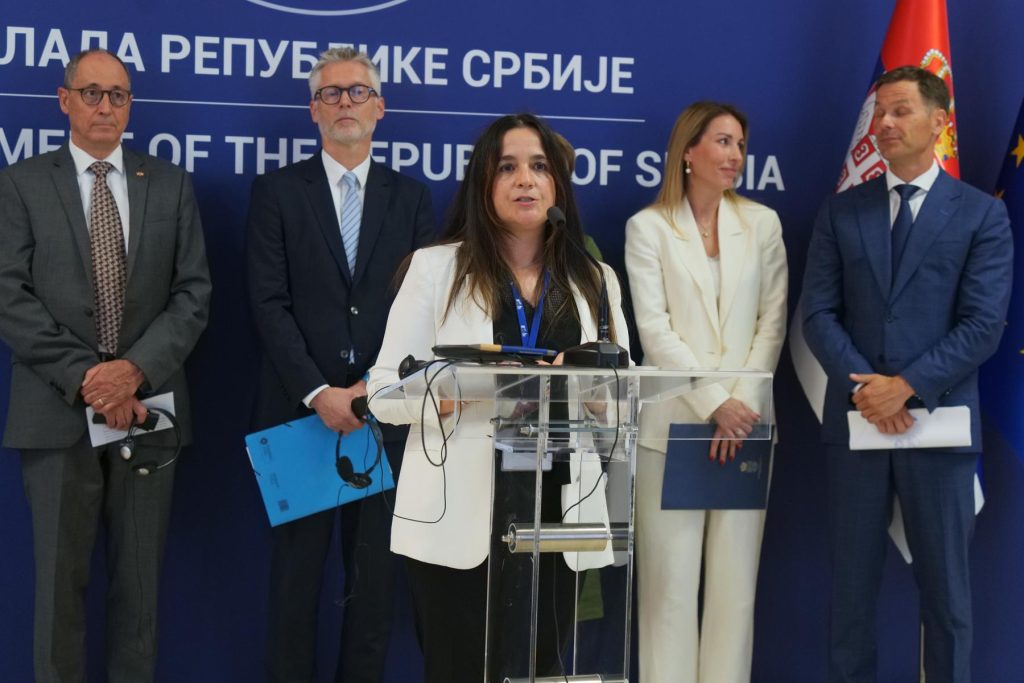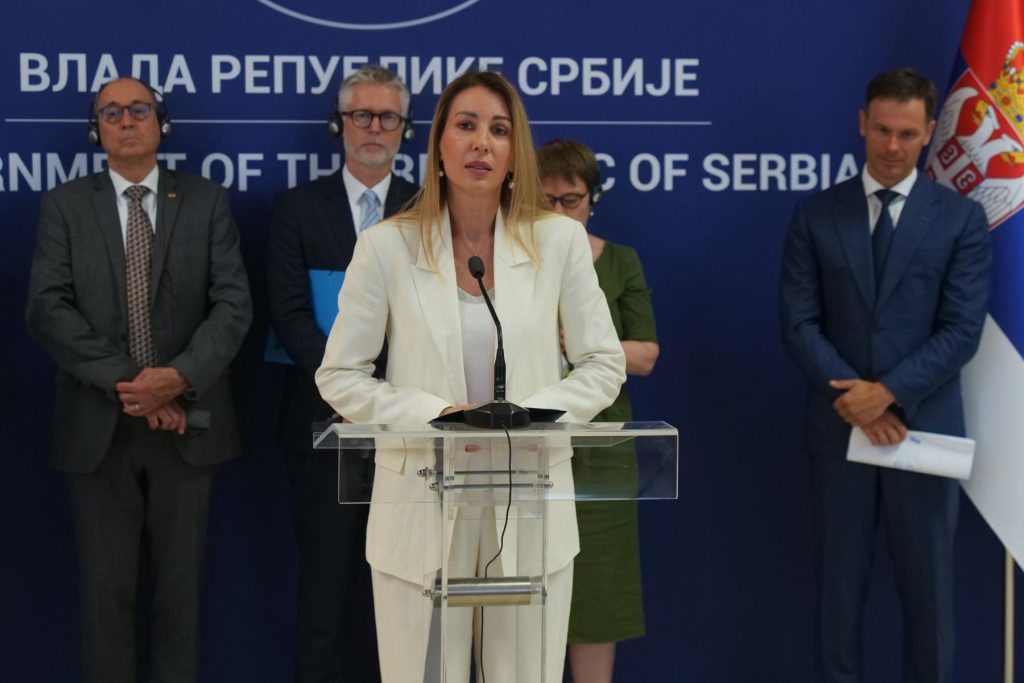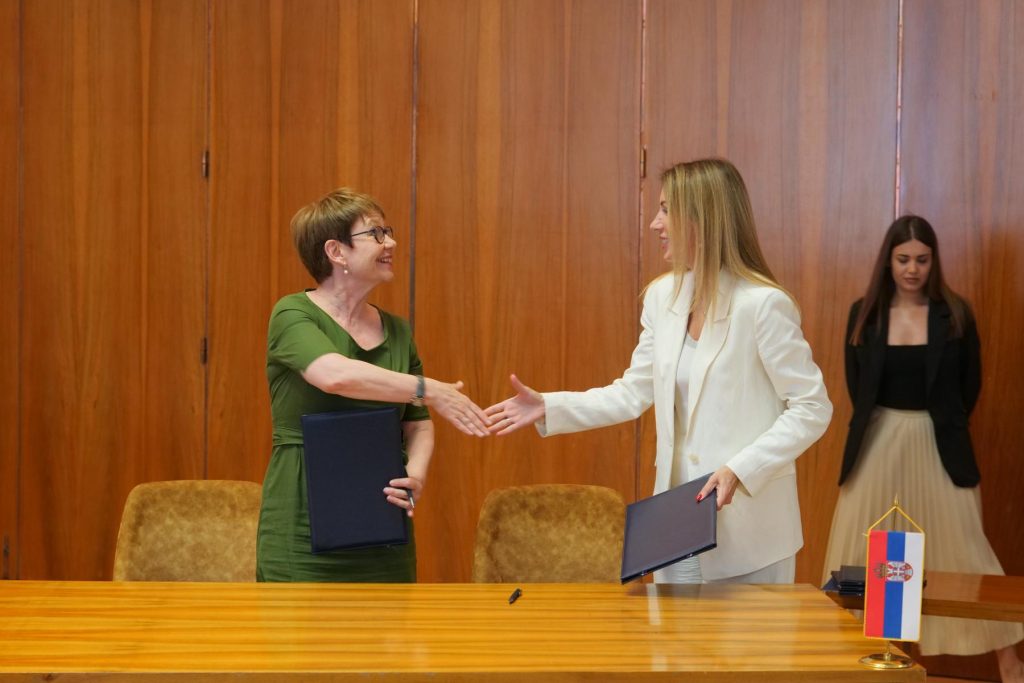Representatives of the Serbian Government, the European Union, Switzerland and Austria attended the agreement signing ceremony for financing of crucial projects for thermal energy production and distribution from renewable energy sources, as well as the improvement of energy efficiency with direct support to the Ministry of Mining and Energy.
The European Bank for Reconstruction and Development (EBRD) has provided a loan to the Republic of Serbia amounting to 30 million euros to finance investments in the thermal energy production from renewable sources in a certain number of heating plants in Serbia, as well as accompanying energy efficiency measures, including the reconstruction of substations and existing district heating networks. The project will be supported by up to 12 million euros of donor funds, provided via the Swiss State Secretariat for Economic Affairs (SECO), the European Union within the Regional Energy Efficiency Program (REEP), and the Government of Austria via the Renewable District Energy in the Western Balkans Program (ReDEWeB).
“Ending fossil fuel dependence and energy security are important issues in the current climate, both in terms of environmental protection and geopolitics. The regional energy efficiency program is one of the tools the European Union has at their disposal to help the region achieve these goals. The REEP’s goals are to support the Western Balkans beneficiaries to achieve their sustainable energy goals, help create a sustainable market for energy efficiency in the region, promote renewable energy and energy efficiency, and stimulate investment in energy efficiency. The initiative signed today meets all the requirements and we are proud to support it”, said Elvira Angulo Rodríguez, Head of Operations I at the EU Delegation to Serbia.
District heating systems in Serbia currently rely heavily on fossil fuels and are extremely energy inefficient, which this project, as the first of its kind in Southeast Europe, aims to change. Considering that Serbia imports up to 90 percent of natural gas supplies, increased use of renewable and waste heat in district heating systems will significantly reduce the country’s dependency on imported petroleum products and natural gas for heating and cooling. The project is expected to contribute to the decarbonization of the district heating system by producing 115 GWh of thermal energy per year, generated from renewable sources and waste heat, to the carbon emission reduction by approximately 14,600 tons of CO2 annually, and significant savings in water and energy.
“With today’s signing, we have completed the overall financing package for this project, worth 40.5 million euros, with a total of 10.5 million euros in grants, which I thank our European partners for. The citizens of Bečej, Bogatić, Kragujevac, Kraljevo, Kruševac, Novi Pazar, Niš, Pančevo, Paraćin and Vršac will get a cleaner and more modern district heating system”, says Dubravka Đedović Handanović, Minister of Mining and Energy.
“Signing this contract is extremely important for the Republic of Serbia, since in this way we contribute to a healthier environment by improving air quality, using renewable energy sources in the production of thermal energy and increasing energy efficiency. In the coming period, we will continue to invest in the energy sector, thereby ensuring security of supply and monitoring the accelerated development of our economy,” says Siniša Mali, Minister of Finance.
The project will secure investments in heating plants and district heating systems by integrating state-of-the-art solar thermal, heat pumps, municipal and industrial waste heat and geothermal technologies into their existing systems.
A grant agreement has also been signed with the Ministry of Mining and Energy, aimed at providing technical assistance to the Serbian Administration for Financing and Encouraging Energy Efficiency, as part of an EU-funded project.
Efficiency, to implement energy efficiency projects financed by the Republic of Serbia. In addition, the goal of the technical cooperation will be to assist the Administration in the development and implementation of mechanisms to support investments in energy efficiency improvement, with a special focus on energy rehabilitation of buildings.
“I am very pleased that we have signed this agreement, which aims to support the decarbonization of Serbia by strengthening institutional capacities for investments in energy efficiency and promoting the efficient use of energy. More efficient use of energy is not only key to reducing greenhouse gas emissions and energy costs, but also plays a significant role in enhancing the quality of public infrastructure and services. This project and its implementation demonstrate Serbia’s commitment to sustainable development, contributing to economic resilience and long-term prosperity. Strengthening the capacity of the Administration for Financing and Encouraging Energy Efficiency will enable easier access to EU funds, as well as the development, implementation and promotion of investment support mechanisms in the field of energy efficiency, with a special focus on energy rehabilitation of buildings,” says Odile Reno-Basso, president of EBRD.
The European Union is the leading donor in the field of energy in Serbia, where it has invested over one billion euros in grants since 2000. In Serbia, the EU provides funding for projects aimed at security of supply, diversification of energy sources, market liberalization and improvement of energy efficiency.
Read more:
Greater nuclear security with EU support







